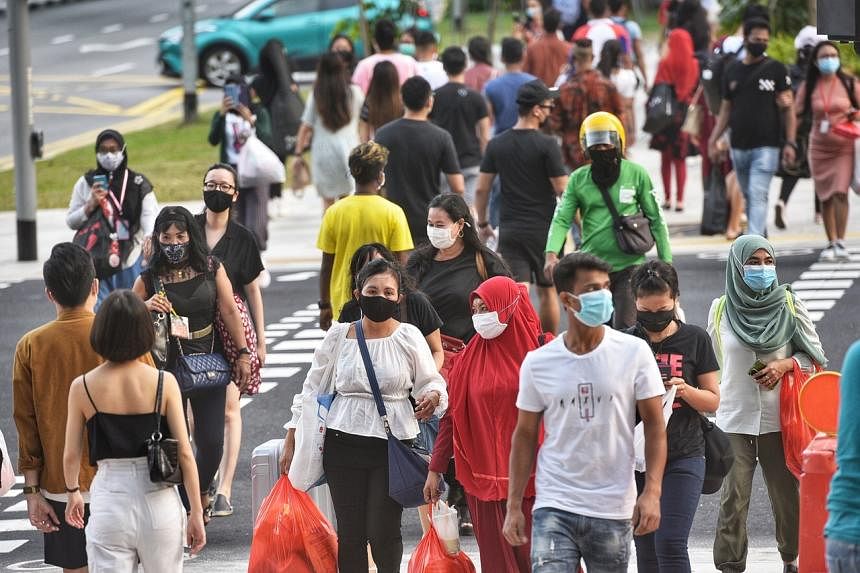More Covid-19 infections are being reported and the number is expected to continue to increase as Singapore rides yet another coronavirus wave.
The Straits Times looks at the new Omicron sub-variants driving current infections, and suggests how you can protect yourself.
What is known about the Omicron sub-variants
• BA.4 and BA.5 were first identified in South Africa early this year but are spreading across the world, especially in the United States and Europe.
• They carry mutations in the virus’ spike protein that may affect its ability to latch on to host cells and evade immune response.
• About 45% of Covid-19 cases in the community in the past week were cases of the BA.4 and BA.5 sub-variants, up from 30% the week before.
• Studies show they are better at infecting vaccinated people than earlier Omicron sub-variants, and may spread faster.
• Data currently shows they do not result in more severe outcomes than the earlier Omicron strains.
• Pfizer, Moderna and Novavax are testing versions of their vaccines to combat the new sub-variants.
10 ways to keep you and your loved ones safe
1. Wear masks

Keep your masks on while indoors.
2. Avoid interactions if unwell

If you feel unwell, avoid in-person interactions even if you test negative.
3. Practise good personal hygiene

Wash your hands regularly with soap and practise good personal hygiene.
4. Self-test using ART kits

Test regularly using antigen rapid test (ART) kits, especially when feeling unwell or visiting vulnerable people. The distribution of 10 ART kits to every household will start from July 18 via SingPost. This may take a few weeks.
5. Keep testing if you have symptoms
If you have symptoms but test negative, continue to test yourself using ART.
6. Get your booster shot

Get your first booster shot if you have not done so already. Do not delay doing so, especially if you are 60 or older.
Mutations in the virus mean that additional protection from a third dose is needed to protect you against severe illness. You should get a booster shot even if you were previously infected, at least 28 days after infection.
7. Get your second booster jab

If you are above 80 years old, living in an aged care facility, or are medically vulnerable and aged 18 and up, get the second booster jab about five months after your first booster dose.
If you are aged 50 to 79, you still have strong protection against severe illness nine months after your first booster. But if you are living with the elderly, travelling frequently, or have underlying illnesses and are worried about your health, you may wish to take the second booster.
8. Monitor your health

If you are a close contact of a Covid-19 patient, monitor your health closely and test yourself before leaving home.
9. Avoid peak periods on public transport

If you are taking public transport, try to travel off-peak.
10. Don't talk while travelling on buses, trains

Avoid talking on public transport to prevent the spread of respiratory droplets.
Where to get your shot
A list of places to get the Covid-19 vaccine can be found at this website.












